Filter by
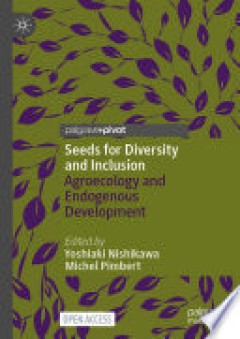
Seeds for diversity and inclusion : agroecology and endogenous development
This open access book will contribute to a more nuanced debate around seed system resilience that goes beyond the dominant dichotomous conceptualization of seed governance often characterized as traditional vs modern, subsistence vs commercial, or local vs global. While reflecting on the expanding oligopoly in the current seed system, the authors argue that such classifications limit our abilit…
- Edition
- -
- ISBN/ISSN
- 9783030894054
- Collation
- XIX, 199 p
- Series Title
- -
- Call Number
- 631.521 YOS s

Decolonising blue spaces in the anthropocene: freshwater management in Aotear…
This open access book crosses disciplinary boundaries to connect theories of environmental justice with Indigenous people’s experiences of freshwater management and governance. It traces the history of one freshwater crisis – the degradation of Aotearoa New Zealand’s Waipā River– to the settler-colonial acts of ecological dispossession resulting in intergenerational injustices for Indi…
- Edition
- -
- ISBN/ISSN
- 9783030610715
- Collation
- xii, 494p. : ill
- Series Title
- Palgrave Studies in Natural Resource Management
- Call Number
- 363.700993 MEG d
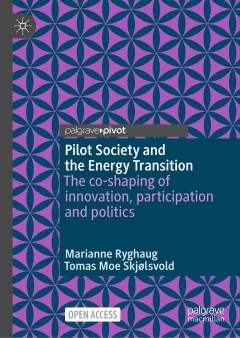
Pilot society and the energy transition : the co-shaping of innovation, parti…
This open access book examines the role of pilot and demonstration projects as crucial devices for conducting innovation in the context of the energy transition. Bridging literature from sustainability transitions and Science and Technology Studies (STS), it argues that such projects play a crucial role, not only in shaping future energy and mobility systems, but in transforming societies more …
- Edition
- -
- ISBN/ISSN
- 9783030611842
- Collation
- vii, 130p. : ill.
- Series Title
- -
- Call Number
- 354.3 RYG p
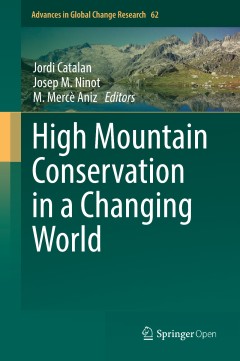
High mountain conservation in a changing world
This book aims to provide case studies and a general view of the main processes involved in the ecosystem shifts occurring in the high mountains, and to analyse the implications for nature conservation. Although case studies from the Pyrenees are preponderant, conclusions are aimed at any mountain range surrounded by highly populated lowland areas. The chapters give emphasis to approaches from …
- Edition
- -
- ISBN/ISSN
- 9783319559827
- Collation
- xiv, 413p. : ill.
- Series Title
- -
- Call Number
- 577.53 HIG h
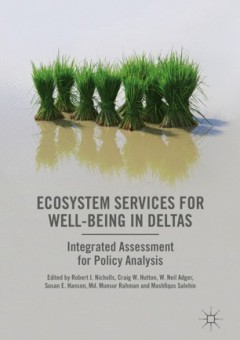
Ecosystem services for well-being in deltas : integrated assessment for polic…
This book answers key questions about environment, people and their shared future in deltas. It develops a systematic and holistic approach for policy-orientated analysis for the future of these regions. It does so by focusing on ecosystem services in the world’s largest, most populous and most iconic delta region, that of the Ganges-Brahmaputra delta in Bangladesh. The book covers the concep…
- Edition
- -
- ISBN/ISSN
- 9783319710938
- Collation
- l, 593p. : ill.
- Series Title
- -
- Call Number
- 333.709 ECO e
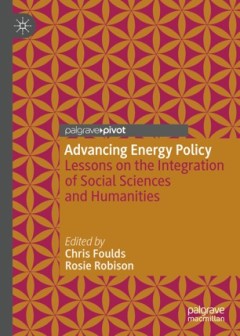
Advancing energy policy : lessons on the integration of social sciences and h…
This open access book advocates for the Social Sciences and Humanities to be more involved in energy policymaking. It forms part of the European platform for energy-related Social Sciences and Humanities’ activities, and works on the premise that crossing disciplines is essential. All of its contributions are highly interdisciplinary, with each chapter grounded in at least three different Soc…
- Edition
- -
- ISBN/ISSN
- 9783319990972
- Collation
- xxvii, 193p. : ill.
- Series Title
- -
- Call Number
- 333.79 ADV a
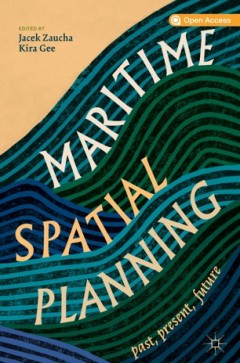
Maritime spatial planning : past, present, future
Maritime or marine spatial planning has gained increasing prominence as an integrated, common-sense approach to promoting sustainable maritime development. A growing number of countries are engaged in preparing and implementing maritime spatial plans: however, questions are emerging from the growing body of MSP experience. How can maritime spatial planning deal with a complex and dynamic enviro…
- Edition
- -
- ISBN/ISSN
- 9783319986968
- Collation
- xxxvii, 477p. : ill.
- Series Title
- -
- Call Number
- 333.9164 MAR m
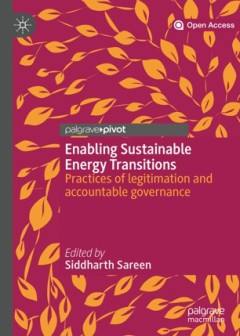
Enabling sustainable energy transitions : practices of legitimation and accou…
This open access book reframes sustainable energy transitions as being a matter of resolving accountability crises. It demonstrates how the empirical study of several practices of legitimation can analytically deconstruct energy transitions, and presents a typology of these practices to help determine whether energy transitions contribute to sustainability. The real-world challenge of climat…
- Edition
- -
- ISBN/ISSN
- 9783030268916
- Collation
- xxi, 168p. : ill.
- Series Title
- -
- Call Number
- 333.79 ENA e
 Computer Science, Information & General Works
Computer Science, Information & General Works  Philosophy & Psychology
Philosophy & Psychology  Religion
Religion  Social Sciences
Social Sciences  Language
Language  Pure Science
Pure Science  Applied Sciences
Applied Sciences  Art & Recreation
Art & Recreation  Literature
Literature  History & Geography
History & Geography